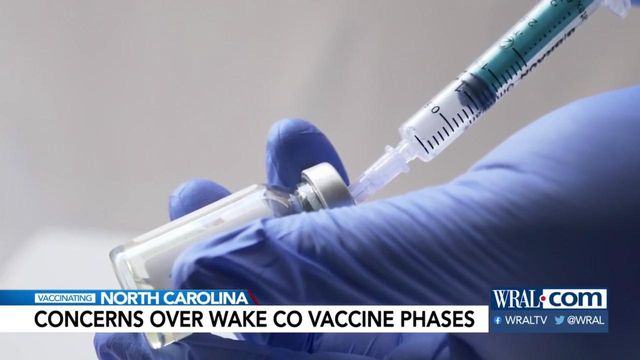FDA expected to approve Pfizer's booster for all adults today
Moderna has asked federal regulators to authorize booster shots of its coronavirus vaccine for all adults, a request that the Food and Drug Administration could grant as early as this week along with a similar request from Pfizer, according to people familiar with the planning.
Posted — UpdatedModerna has asked federal regulators to authorize booster shots of its coronavirus vaccine for all adults, a request that the Food and Drug Administration could grant as early as this week along with a similar request from Pfizer, according to people familiar with the planning.
If the Centers for Disease Control and Prevention also signs off, every adult who was fully vaccinated with the Pfizer-BioNTech or Moderna shot at least six months ago would not only be eligible for a booster but could choose which vaccine. The agency’s committee of independent experts is set to meet Friday to discuss booster shots.
It would also allow President Joe Biden to fulfill his August pledge to offer booster shots to every adult — nearly two months later than the administration originally planned, though, and amid an ongoing debate among experts over whether extra shots are necessary for younger, healthy adults.
As it stands now, only people people who received two doses of the Pfizer-BioNTech or Moderna vaccines and are 65 or older, or adults who are considered to be at special risk because of their medical conditions, jobs or living environments are eligible for boosters. Anyone who received the single-dose Johnson & Johnson shot can already get a booster, two months after the first shot. Eligible people can select from any of three vaccine brands as a booster.
By some estimates, the existing eligibility categories, which are broad but complicated, cover up to 70% of adults. More than 30 million Americans, or about 16% of those fully vaccinated, have already gotten additional shots. But under the federal rules, tens of millions more are still ineligible.
Even if federal regulators do not act on Moderna’s request this week, the FDA and the CDC are expected to allow all fully vaccinated adults access to Pfizer’s booster. At a White House briefing on Wednesday, Dr. Anthony Fauci, the government’s top infectious disease expert, defended the administration’s approach of broad access to boosters, saying vaccines should protect against symptomatic illness, not just hospitalization and death.
“I don’t know of any other vaccine that we only worry about keeping people out of the hospitals,” he said. “I think an important thing is to prevent people from getting symptomatic disease,” noting that it can have long-term consequences, a condition dubbed long COVID.
“There’s a really good reason to optimally protect younger individuals” as well as older and more vulnerable people, he said.
A growing number of states and localities have moved on their own to offer booster shots to all their adult residents, either by generously interpreting or simply ignoring the federal guidelines. As of Wednesday, a number of states had broadened access, including Kansas, Kentucky, Maine and Vermont. New York City health officials Monday encouraged all adults who want boosters to seek them out.
Moderna announced Wednesday that it had requested the FDA to broaden its booster authorization to include all adults, as regulators in Canada and the European Union have recently done.
Moderna’s vaccine is considered more protective than Pfizer-BioNTech’s; its dose for the initial two shots is 100 micrograms, while Pfizer’s is 30. Regulators authorized a half-dose of Moderna as a booster for older people and other vulnerable groups, in part to mitigate concerns about side effects; Moderna is seeking the same half-dose booster for the broader adult population.
State and local health officials have criticized the existing federal eligibility categories for Moderna and Pfizer booster shots as far too complicated for the public to figure out. Besides those who are 65 or older, those eligible include those with medical conditions ranging from heart conditions to obesity to depression.
Copyright 2024 New York Times News Service. All rights reserved.





